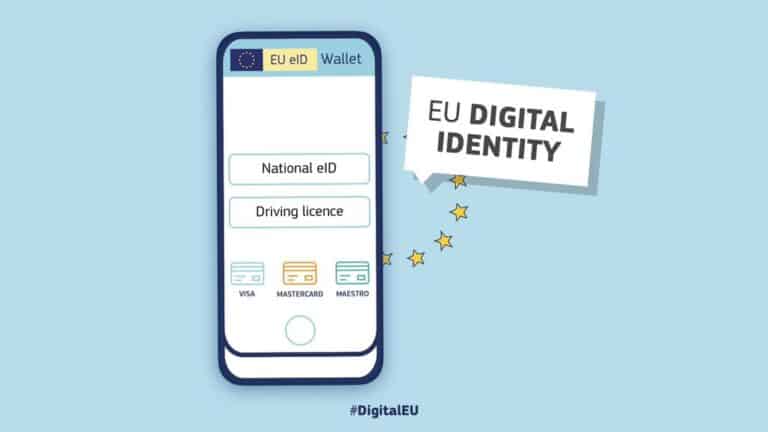The European Commission wants a digital identity certificate for every resident, but experts are concerned about the plan. “There are a number of snags”, IT security professor Bart Jacobs told Dutch media.
A digital identity certificate has advantages. Digital verification can be safer and faster than the exchange of physical documents. While most European member states have a digital system, some lag behind. For their residents, it can be a challenge to identify themselves at home and abroad. That’s what the European Commission hopes to change.
Brussels wants to oblige all member states to introduce a digital identification system in the coming years. Member states will be allowed to decide on the system’s details, as long as it is compatible with the systems of other member states. In this way, European residents will be able to identify themselves internationally.
The plan, known as European Digital Identity (eID), was announced in June 2021. The European Commission asked all member states to provide a document with the technical details of their national system by September 2022. As the deadline approaches, several experts express concerns about the security of eID.
European digital identity
Bart Jacobs, Professor of Computer Security at the Radboud University in the Netherlands, believes the system should be open source. He told local media that it’s important to ensure that anyone can review whether the privacy of citizens is respected. Furthermore, Jacobs is a proponent of decentralized data storage. According to the professor, personal data should not be stored in one place, but on users’ devices, where only they can access it.
More identification
Jaap-Henk Hoepman, associate professor of privacy at Radboud University in the Netherlands, sees eID as a necessary evil. “If the European Commission doesn’t come up with European verification, Apple and Google are going to realize a similar system”, he told local media. “That means digital passports are completely dependent on tech giants, which is not a situation you want to end up in.”
Nevertheless, eID creates the risk of organizations increasingly requesting personal data, Hoepman said. According to the professor, eID makes it easy for providers to obtain personal information. For instance, Hoepman finds it important to avoid situations wherein a delivery service asks for a customer’s age.
What now?
Despite the concerns mentioned above, most European member states favour a new, centralized system with a digital identity for every resident. After September 2022, the input of all member states will be considered by the European Commission. From there, the Commission will write an official bill, after which the European Council and member states vote for or against the proposal. The new rules can only be implemented with a majority vote.
Tip: European Commission wants EU to build its own DNS infrastructure
